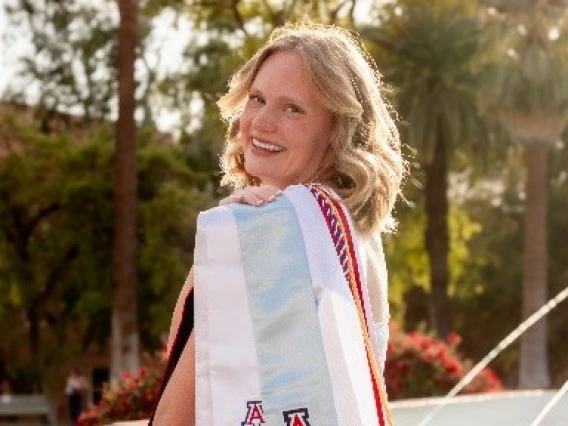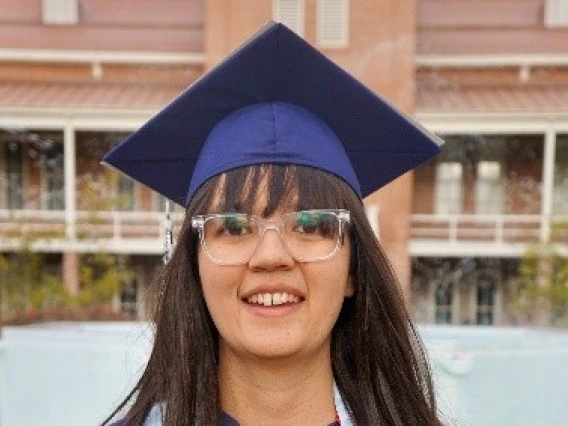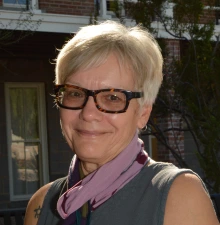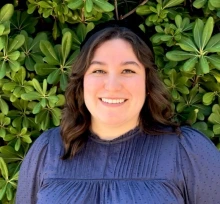Rehabilitation Studies and Services (RSS) B.S.E. Degree Program
The Rehabilitation Studies and Services (RSS) is a 48-credit Bachelor of Science in Education (B.S.E.) Degree that prepares undergraduate students with the knowledge and skills necessary to collaborate with diverse individuals across a wide range of rehabilitation settings. Informed by Rehabilitation Psychology, Social Psychology, and Disability Studies, rehabilitation refers to services that optimize functioning and reduce barriers in the environment.
The RSS program has a dynamic curriculum that blends theoretical knowledge with practical application. Through hands-on learning experiences, students develop the critical skills needed to navigate the rehabilitation process and advocate for individuals in diverse circumstances. At its core, the RSS program fosters a deep understanding of the social, psychological, and personal aspects of disability, preparing graduates to make a lasting difference.
Career Opportunities
Graduates of the RSS program often continue their education in graduate school in fields such as rehabilitation and mental health counseling, rehabilitation psychology, physiotherapy, occupational therapy, and speech and language therapy and audiology.
The need for qualified rehabilitation and human service professionals is expected to remain strong, and graduates also find employment in settings including but not limited to: private non-profit rehabilitation centers, community mental health agencies, nonprofit and private-for-profit rehabilitation agencies, rehabilitation hospitals, alcohol and other drug treatment centers, correctional facilities, public welfare agencies, social service agencies, schools, vocational rehabilitation programs, assisted living centers. In these settings, graduates of the RSS program can obtain employment in diverse job titles such as:
- Addiction Recovery Coach: support individuals recovering from substance abuse, promoting the development of coping strategies and maintaining sobriety.
- Behavioral Technician: Implementing therapeutic plans and provide direct care to individuals with mental health concerns.
- Case Manager: coordinate services for individuals in various settings such as healthcare, community service, or rehabilitation agencies.
- Community Outreach Coordinator: connect individuals with disabilities to community resources, services, and support networks.
- Disability Services Coordinator: deliver support and resources to individuals with disabilities in educational settings, facilitating their access to campus courses, programs, and services.
- Developmental Disabilities Support Worker: provide specialized support to individuals with developmental disabilities, working in programs or facilities dedicated to their care and development.
- Health and Wellness Coordinator: develop programs to promote health, wellness, and accessibility for individuals with disabilities in various community or corporate settings.
- Independent Living Advocate: empower individuals with disabilities in achieving independence, working within independent living centers to offer resources on daily living skills, advocacy, and community integration.
- Job Coach: support individuals, often those with disabilities, prepare for and maintain employment by providing guidance, training, and support to enhance job skills and achieve career goal.
- Recreation Aide: facilitates the delivery of recreational programs and activities, ensuring a safe and engaging environment for participants, often working with recreation directors and leaders in municipalities, schools, or community centers.
- Rehabilitation Specialist: Assist in rehabilitation settings such as physical therapy clinics, hospitals, or long-term care facilities, providing direct care and support for individuals recovering from injuries or illnesses.
- Residential Coordinator: Oversee group homes or assisted living facilities, ensuring residents with disabilities receive appropriate and effective services.
- Vocational Rehabilitation Counselor: Assist individuals with disabilities in finding and maintaining employment, providing guidance and resources to remove barriers in the workplace.

Hadly Turner, RSS Graduate
The University of Arizona's Rehabilitation Studies & Services Major is an outstanding program that provides diverse educational opportunities and hands-on experiences within the Tucson community. I am completing my major with a newfound understanding of accessibility, the disability experience, and ways in which we can advocate for disability culture. I would recommend this major because of the incredible array of staff and faculty who support the program and are genuinely dedicated to helping students succeed. This major also provides an incredible foundation for a variety of careers related to education, disability, therapy, rehabilitation, and more!

Claire Adams, RSS Graduate
This experience has taught me the value of serving others and how embracing my strengths and passions opens up doors I never imagined. I’ve learned to follow my heart and advocate fiercely.
Program Curriculum
Students majoring in Rehabilitation Studies and Services complete 48 credit hours of required coursework as part of the 120 credits needed to graduate with a bachelor’s degree. The required RSS coursework includes 21 credit hours dedicated to the core curriculum, providing a strong foundation in essential rehabilitation concepts and practices as well as 27 credit hours of elective coursework. The elective coursework offers students the flexibility to tailor their studies to personal interests and professional goals while enhancing expertise for diverse career opportunities.
Required Core Courses (24 Credits)
SERP 200: Mass Media and Its Construction of Disability (3 credits): Analysis of how disability is portrayed in American mass media and its impact on public perception. Enrolled students will synthesize how these representations influence individual attitudes, political discourse, and social responses toward people with disabilities.
SERP 416: Disability Perspectives and Narratives (3 credits): This course promotes a critical understanding of disability in the United States, focusing on the psychosocial aspects and lived experiences of disability. Students will explore theoretical perspectives, first-person narratives, and topics such as disability studies, historical views, intersectionality, societal attitudes, disability identity, professional practices, and disability arts and sports.
SERP 460: Advocacy for Social Change in Human Services (3 credits): Overview of the fundamentals of advocacy, focusing on societal systems and structures, civil rights, and disability justice. Students will explore effective advocacy tactics and strategies, while being encouraged to integrate advocacy into their human service practice.
SERP 463: Assessment Strategies in Case Management (3 credits): In-depth exploration of client-centered assessment practices used in human services. Students will learn to conduct comprehensive assessments, develop individualized service plans, and monitor client progress, with emphasis on ethical practice, cultural competence, holistic approaches, and interdisciplinary collaboration.
SERP 465: Introduction to Rehabilitation (3 credits): Exploration of rehabilitation services across the lifespan, focusing on disability, corrections, addiction, and aging, while emphasizing advocacy for access and inclusion. Students will gain key knowledge in education, employment, independent living, and relevant legislation to support the identification and removal of systemic barriers.
SERP 478: Substance Use and Prevention (3 credits): Analysis of the various factors that contribute to addiction, including genetic predispositions, neurochemical imbalances, environmental influences, and social or cultural contexts. Students will examine how these factors interact to shape addictive patterns and behaviors, and how they influence both the individual and society as a whole.
SERP 481: Interviewing and Case Management (3 credits): Development of essential interviewing skills for case management, teaching students how to effectively communicate, build rapport, and assess client needs. Through practical exercises, students will gain experience in conducting interviews that promote trust and support tailored intervention plans.
SERP 483: Supervised Casework in Rehabilitation (3 credits): 135 hours of hands-on experience in various rehabilitation settings, allowing students to apply their skills in real-world environments. Students will work alongside professionals in a variety of settings, gaining valuable insights into rehabilitation practices and building essential professional skills. Examples of supervised casework settings:
- Autism Society of Southern Arizona
- Beacon Group
- Casa De Los Ninos
- Child and Family Resources
- COPE Community Services
- Desert Survivors, Inc.
- Direct Advocacy and Resource Center
- La Frontera Center
- Project FOCUS
- Tucson Jewish Community Center
- United Cerebral Palsy/WorkAbility
Sample Electives (24 Electives)
SERP 414: Introduction to Disability Studies (3 credits)
SERP 464: Introduction to Autism, (3 credits)
SERP 476: Trauma, Grief, and Loss (3 credits)
SERP 479A: Psychiatric Rehabilitation (3 credits)
SERP 497k: Sexuality and Disability (3 credits)
HUSV 407: Cultural and Person-Centered Approach to Human Services (3 credits)
HUSV 450: Human Services: Multicultural Perspective (3 credits)
HDFS 117: Lifespan Human Development (3 credits)
HDFS 257: Contemporary Families (3 credits)
HDFDS 413: Issues In Aging (3 credits)



